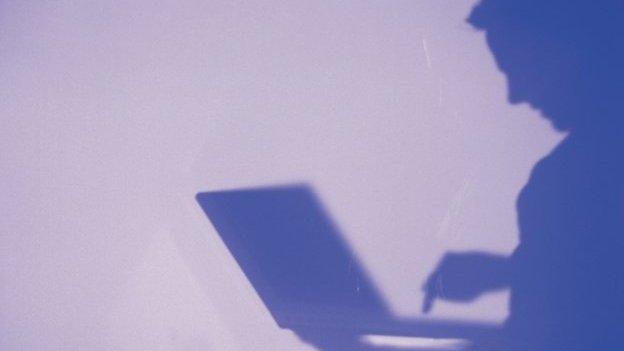'Paedophile hunter' evidence used to charge 150 suspects
- Published
The BBC accompanied a "paedophile hunter" group based in West Yorkshire on two 'stings'
Evidence from so-called paedophile hunter groups was used to charge suspects at least 150 times last year, a BBC investigation has found.
A Freedom of Information request, sent to every police force in England and Wales, showed a seven-fold increase in the use of such evidence from 2015.
Twenty-nine of the forty-three forces approached (67%) provided data.
Despite this, the National Police Chiefs Council say the groups' tactics present "significant risks".
Tracked down
The online groups use what they call "decoys" to pose as underage children and wait to be contacted by adults.
They then converse privately with adults and identify those attempting to groom young people.
Individuals are then tracked down, the confrontation is often streamed live on social media and police are called.

A 'decoy' - 'Sarah' of Predator Exposure
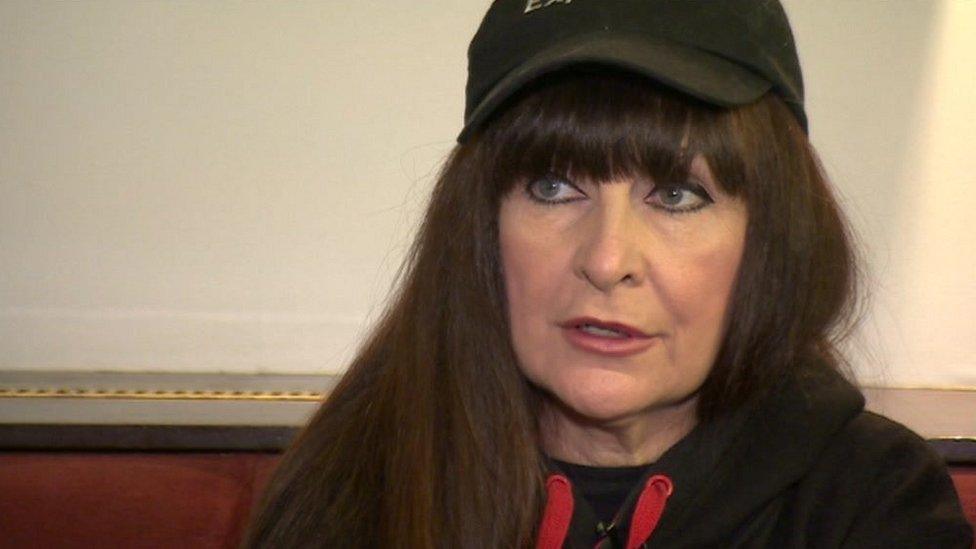
"They [the targets] are always made aware of the child's age at the start of the chat, so there's no misconception about how old the child is," Sarah said.
"We class ourselves as child protectors - if a potential predator is talking to my decoy, they aren't talking to a real child, that's the way I look at it."
Sarah told the BBC she spent hours replying to messages which often contain explicit language, photos and videos.
"I set a new decoy up one night, by the next morning I had had 180 friend requests, mostly from men," she said.
"We're only touching the tip of the iceberg, it's right across social media. Even if we just take 20 out, those 20 aren't going to be child rapists."

It is thought about 75 active "paedophile hunter" groups are operating across the UK.
Police warn the groups' actions may interfere with surveillance operations and "evidence" they gather may be illegally obtained and therefore excluded from a prosecution.
One group, Predator Exposure, was founded in Leeds in 2016 and claims to have supplied evidence leading to the conviction of more than 20 sex crime offenders in the past 12 months.
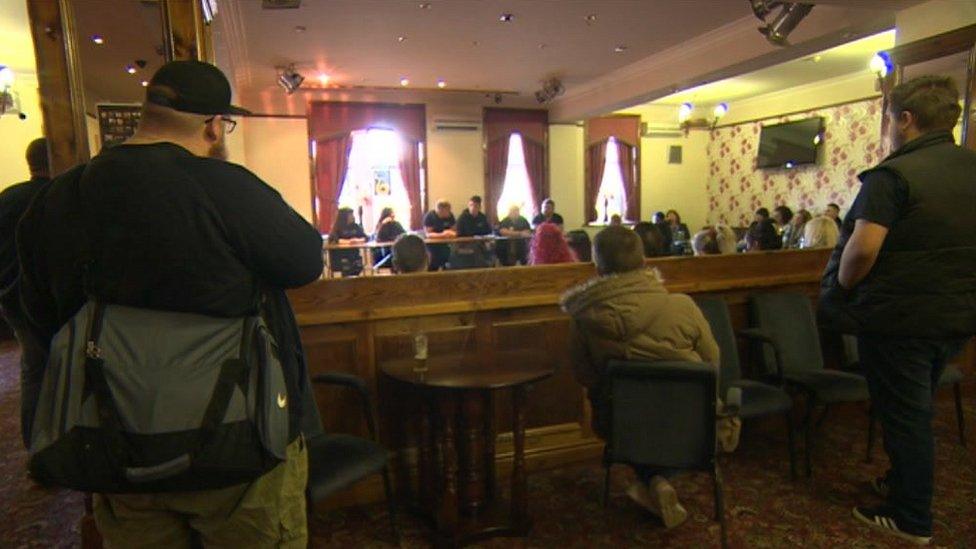
A recruitment event was held in a pub in Bradford to find volunteer "decoys"
Speaking at a volunteer recruitment day at a pub in Bradford, ex-convict Phil Hoban, who started the group, said: "The police can say 'we don't like you doing this, we don't like you doing that', but we're going to continue."
Mr Hoban served 15 months in prison in 2005 for his part in a robbery where a cash machine was stolen in East Yorkshire.
Phil Hoban is a paedophile hunter, he claims his group safeguards children.
He said his group, which has seven members, staged the enrolment drive for new "decoys" in order to deal with the growing demand.
Potential volunteers were told the role would take up a great deal of spare time and an interest in child protection was required.

The data
Each police force in England and Wales was asked by the BBC to say how many people had been charged after evidence was given by paedophile hunters, with 29 out of 43 able to give three years' worth of figures.
The supplied data showed a greater than seven-fold rise in two years - from 20 in 2015 to 150 in 2017.
Of the police forces that responded, almost half (47%) of the cases of the crime of meeting a child following sexual grooming used evidence from so-called paedophile hunting groups in 2017.
The data only confirms that the evidence was used in some part. It does not suggest that the vigilantes' actions were solely responsible for charges being brought.

Assistant Chief Constable Catherine Hankinson, of West Yorkshire Police, urged those who are involved in paedophile hunter groups to bring them evidence but to then "let us deal with it".
"It does present significant risks when these groups confront individuals, first of all for themselves - these are often very high-octane, emotional situations," she said.
"There's significant risk involved for the individuals that they are confronting, not least because it might sometimes be an innocent member of the public or it might actually disrupt a wider undercover policing investigation that we've got ongoing."
Chief Constable Simon Bailey, from the National Police Chiefs' Council, said: "The increase in these groups is symptomatic of the increasing scale of child sexual abuse that police are dealing with.
"It reinforces the need for technology companies to do more to prevent offenders using their platforms to prey on children and for children to be educated about healthy relationships and staying safe online."
- Published13 February 2018
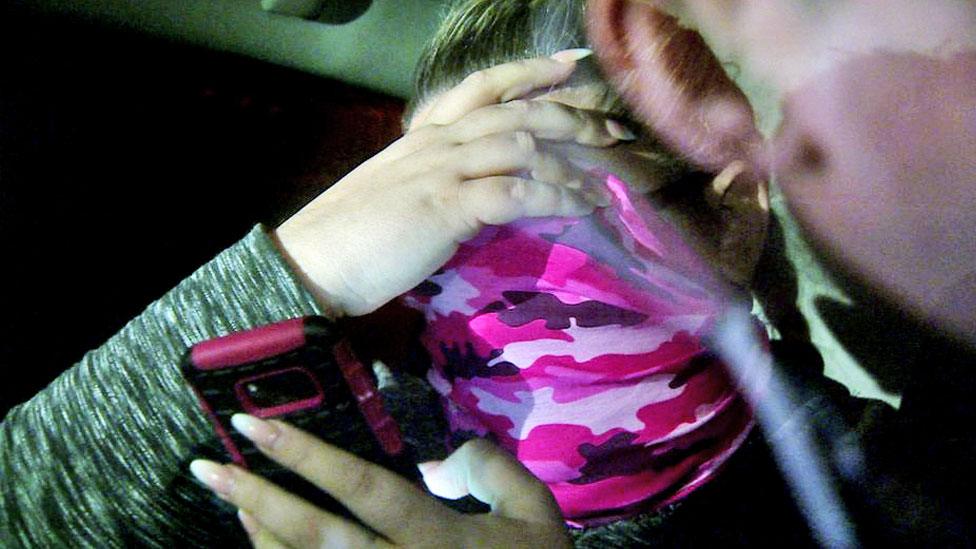
- Published25 January 2018
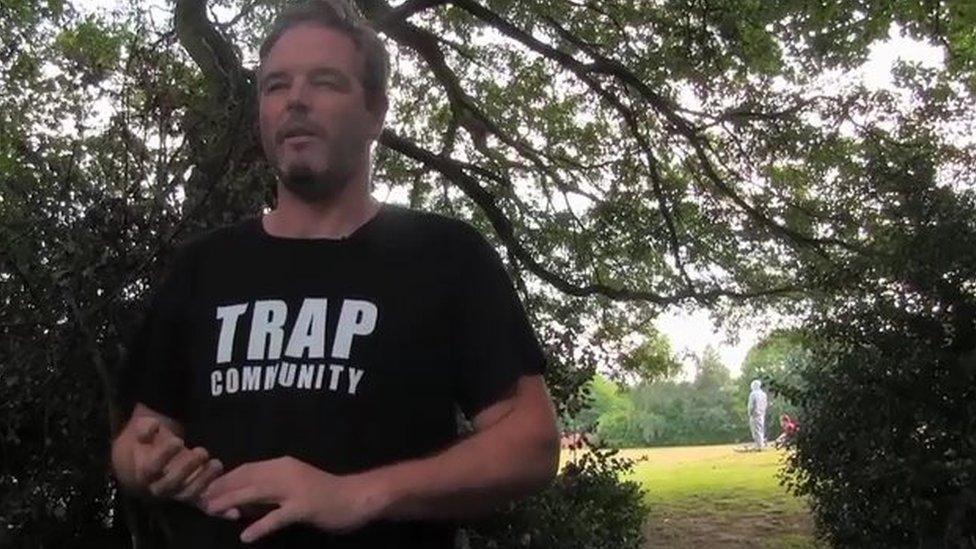
- Published10 January 2018
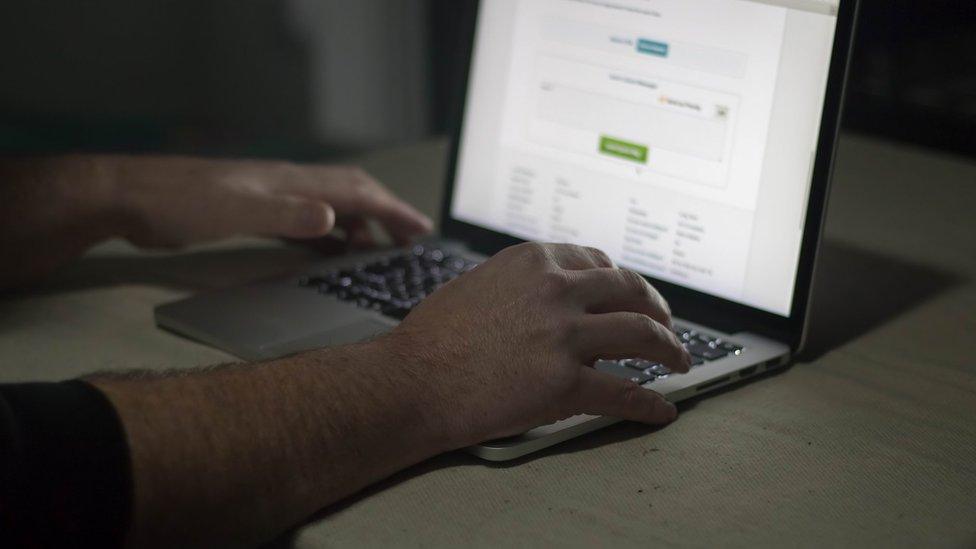
- Published4 June 2015
